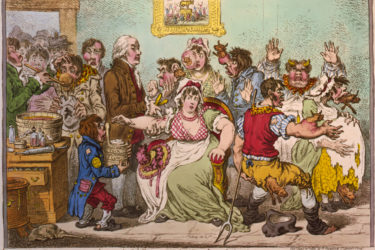Tag: vaccines
“Piltdown medicine” and Andrew Wakefield’s MMR vaccine fraud
Pity poor Andrew Wakefield. Well, not really. I tend to view what’s happening to him yet again as the chickens coming home to roost. Let’s put it this way. 2010 was a terrible year for him, and 2011 is starting out almost as bad. In February 2010, the General Medical Council in the U.K. recommended that Wakefield be stripped of his license...
Vaccines are a pain: What to do about it
As much as I support vaccines, I see the short term consequences. Vaccines can be painful. Kids don’t like them, and parents don’t like seeing their children suffer. That this transient pain is the most common consequence of gaining protection from fatal illnesses seems like a fair trade-off to me. But that’s not the case for every parent. Today’s post isn’t going...
Be thankful: No anti-vaccine propaganda at the movies this weekend
It’s Thanksgiving Day here in the U.S., and, despite the crappy economy, there are still things to be thankful for. For instance, skeptical activism can still be effective. On Sunday Skepchick Elyse put out the call to Skepchick readers to complain to movie theaters that were reportedly going to be airing a public service announcement from the anti-vaccine group SafeMinds? (Actually, “public...
Improving Our Response to Anti-Vaccine Sentiment
As Vaccine Awareness Week draws to a close, I thought it might be instructive to step back and look at the tactics, impact, and successes of the anti-vaccine movement. Yesterday, Orac questioned the best approach to counter the anti-vaccine movement. With today’s post, I’ll summarize two pertinent papers on the effectiveness of their tactics, and suggest some possible approaches. There’s overwhelming evidence...
Vaccine Wars: the NCCAM Drops the Ball
If you go to the website of the National Center for Complementary and Alternative Medicine (NCCAM), you’ll find that one of its self-identified roles is to “provide information about CAM.” NCCAM Director Josephine Briggs is proud to assert that the website fulfills this expectation. As many readers will recall, three of your bloggers visited the NCCAM last April, after having received an...
Journal Club Debunks Anti-Vaccine Myths
American Family Physician, the journal of the American Academy of Family Physicians, has a feature called AFP Journal Club, where physicians analyze a journal article that either involves a hot topic affecting family physicians or busts a commonly held medical myth. In the September 15, 2010 issue they discussed “Vaccines and autism: a tale of shifting hypotheses,” by Gerber and Offit, published...

What does “anti-vaccine” really mean?
We frequently use terms like "antivaccine," "antivax," and "antivaxxers." Critics think it's a "gotcha" to ask how we define "antivax." It's not. There are gray areas, but not so gray that the word is never appropriate.

Using attacks on science by the anti-vaccine movement as a “teachable moment”
A new study on the connection between vaccines and autism demonstrates two things: there is no connection, and those who think there is are not interested in science unless it supports what they already believe.

